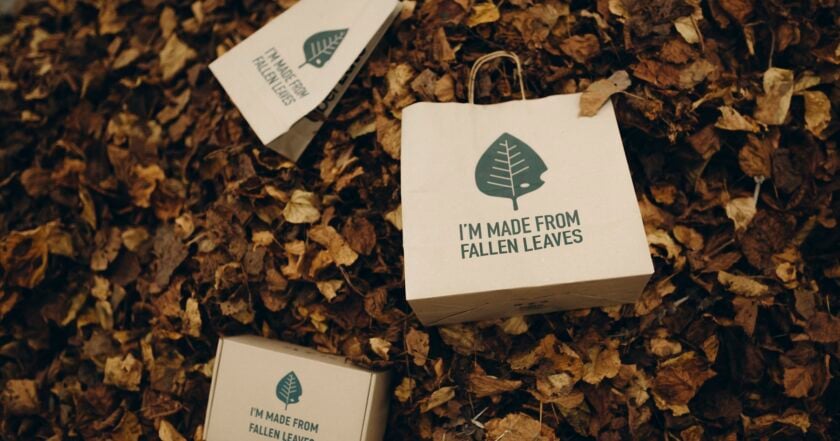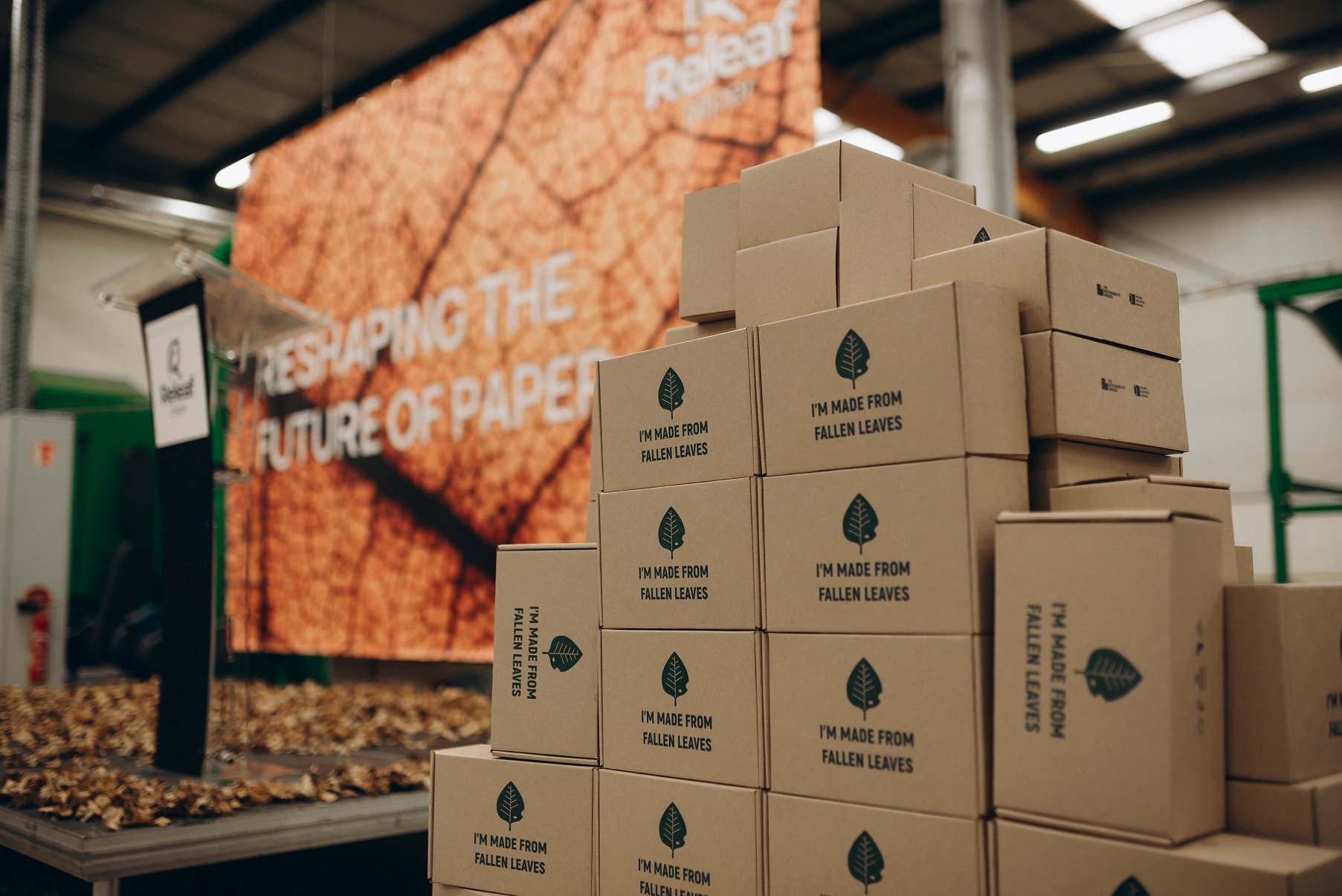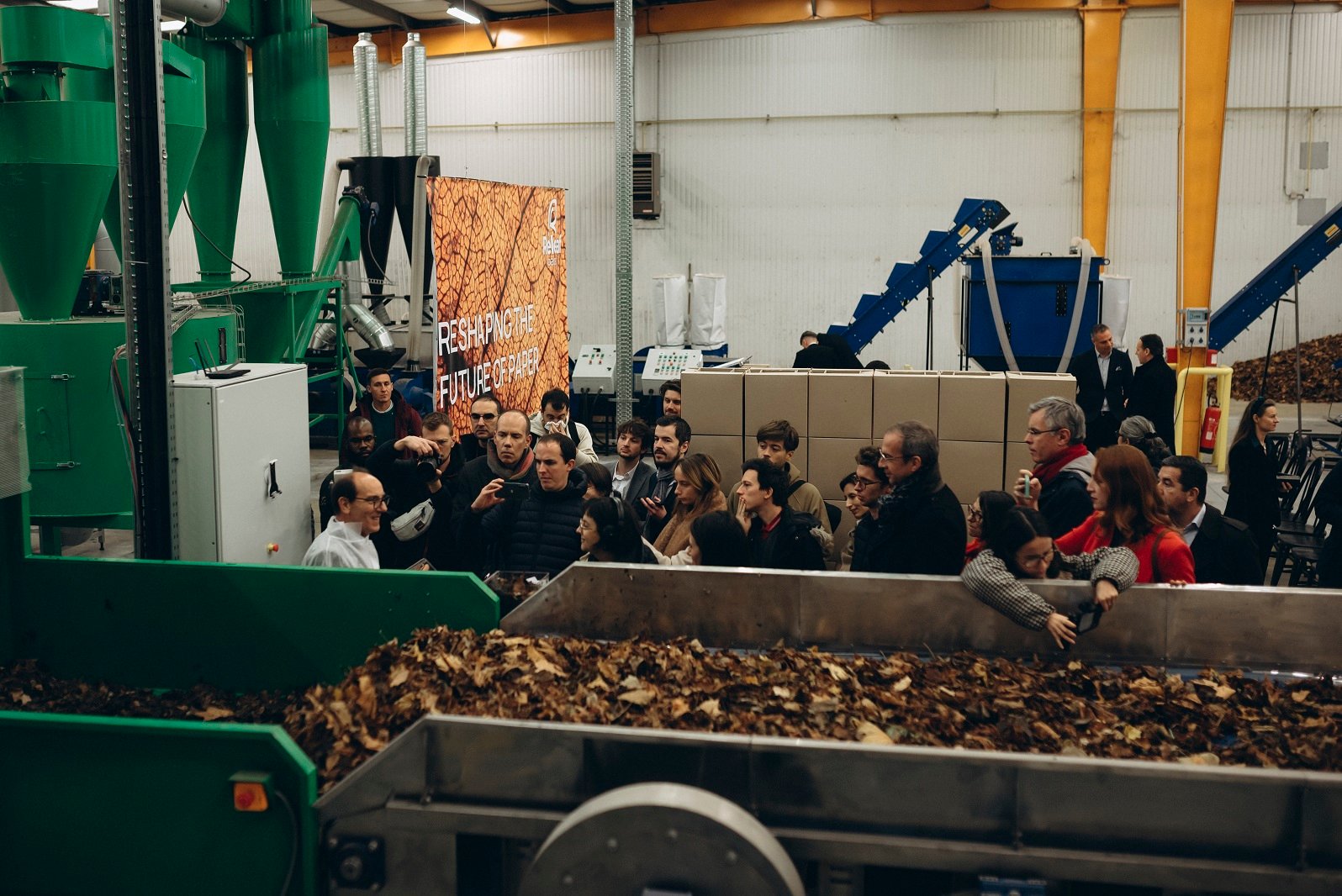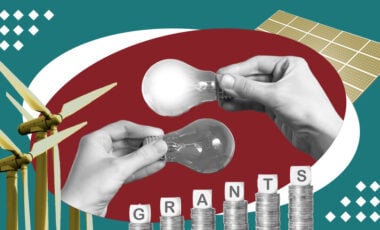Eco-solutions: Ukrainian company Releaf Paper introduces pilot production line utilizing fallen leaves in France

The Ukrainian company Releaf Paper is launching a pilot production line in France that utilizes fallen leaves to create high-quality pulp and paper, particularly for sustainable packaging.
Rubryka reports this.
What is the problem?
Each year, cities across the globe deal with the build-up of large amounts of green waste, such as fallen leaves. Typically, this waste is either burned or deposited in landfills. This leads to a rise in CO₂ emissions and a squandering of valuable natural resources that could be utilized more effectively. Meanwhile, the packaging industry continues to rely on conventional materials, resulting in a significant environmental impact, including elevated carbon emissions and water usage.
What is the solution?
Releaf Paper presents a groundbreaking solution: utilizing fallen leaves to produce top-notch pulp and paper, specifically for eco-friendly packaging. This approach transforms organic waste into a precious commodity, lessening the reliance on timber and minimizing the ecological impact of the paper sector.
A new pilot production line in Le Muro, Île-de-France marks the initial stage of introducing this technology in France. The European Innovation Council (EIC) is co-funding the project with a budget of €3.5 million, facilitating the efficient disposal of urban green waste.

How does it work?
Releaf Paper uses a patented technology that combines mechanical and thermochemical methods to process green biomass, obtaining high-quality fibers from it. This technology is adapted for different raw materials, including urban leaves and agricultural waste.
The new plant in Le Muro can handle 20,000 tons of fallen leaves annually, thanks to Releaf's cutting-edge process that raises the bar for environmental impact:
- it produces just 0.066 kg of CO₂ per kg of product, which is up to 70% less than the average for global markets based on open data;
- it only uses 0.002 liters of water per kg of product;
- it has a supply chain of under 20 km for raw materials;
- it takes just one year to recover resources and only 55 days to biodegrade.
Using fallen leaves, Releaf Paper significantly reduces dependence on traditional raw materials, helping to reduce carbon emissions, water consumption, and transport distances.
"This is more than just a factory – it is a statement that urban waste can become an important resource," Oleksandr Sobolenko, CEO of Releaf Paper, emphasizes. "By converting fallen leaves into cellulose, we prove that sustainable materials can be locally sourced, high-quality, and scalable. Our pilot line in France is just the beginning; we aim to change the world's perception of waste and create a truly circular economy."

"By creating fiber from fallen leaves, we are not only offering an alternative material for the packaging industry but also unlocking the potential of urban green waste," Valentyn Frechka, technology director of Releaf Paper. "Our technology is designed to work with various feedstocks, from urban vegetation to agricultural waste. This allows us to adapt methods to local resources and significantly reduce the environmental footprint of traditional papermaking."





















































